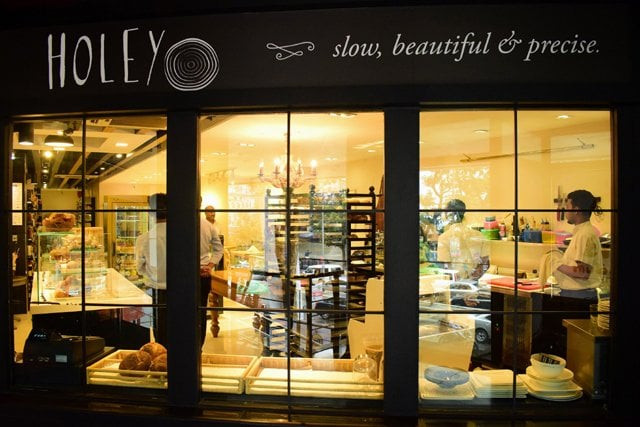Bangladesh attack cafe thrives a year on, but fears persist
The siege was one of the worst militant attacks in Bangladesh's history

This photo taken on June 22, 2017 shows staff members at the newly opened Holey Artisan Bakery in Dhaka, a year after a deadly siege by Islamist militants at the bakery's old location. As the chatter of customers and the smell of warm bread fill the Holey Artisan Bakery it is easy to forget the scenes of horror that unfolded at the upscale Dhaka cafe, but a year on the impact of the deadly siege is still being felt. Five young men armed with guns and knives stormed the cafe on July 1, 2016 taking dozens hostage and killing 22 people. Most of the victims were foreigners, and many were hacked to death. PHOTO: AFP
Five young men armed with guns and knives stormed the cafe on July 1, taking dozens hostage and killing 22 people. Most of the victims were foreigners, and many were brutally hacked to death. A year later the bakery, which has reopened in a new location, throngs with customers hungry for its famous breads, cookies and pastries.
Two militants killed in Bangladesh raid
"It's great to have this place back. Reopening the cafe was a great act of courage," said Laura Jenkins, a US citizen who has lived in Bangladesh for five years, as she picked at a freshly baked croissant.
Cafe owner Sadat Mehdi said his decision to reopen had paid off, with loyal clients -- a mix of expatriates and well-heeled Bangladeshis living mostly in the diplomatic zone -- returning in droves.
"Their responses are the biggest encouragement for us," he told AFP on a recent visit.
Many of those caught up in the siege -- one of the worst militant attacks in Bangladesh's history -- were foreigners working in the country's $30 billion garment industry, a mainstay of the country's economy.
The Islamic State group claimed responsibility for the attack, but Bangladesh insists it was the work of a local extremist group blamed for a series of earlier killings. It followed a series of gruesome murders targeting foreigners and religious minorities in Bangladesh and caused many to flee to Bangkok.
As fears grew over the impact on the lucrative sector, government forces launched an unprecedented crackdown on extremists. Over the past year they have killed nearly 70 suspected extremists, including a Bangladeshi-origin Canadian alleged to have been the mastermind of the attack, and arrested many more.
Home Minister Asaduzzaman Khan told AFP the Bangladeshi people had taken a "firm stance against militancy".
"They (militants) don't have much strength left. Gradually we have managed to finish all of it," he said.
But not everyone agrees.
Critics accuse Prime Minister Sheikh Hasina's secular government of using the attacks to demonise her domestic opponents. "Any sustainable counter-terrorism effort requires democratic responses, which is essentially a cross-party participation in the process," said Shahab Enam Khan, an expert on security and terrorism at Bangladesh's Jahangirnagar University.
"Otherwise the extremists' narrative will always cash in on the long-running political feuds existing in the country."
Most of the foreigners who left in the wake of the attack have now returned, reassured by an improvement in the security situation and a marked increase in the presence of government forces on the streets.
Many upscale restaurants and expat clubs have armed guards and sandbag barriers at their entrances to deter attacks. Expatriates told AFP the measures had brought a degree of comfort -- at a cost.
Bangladesh police kill militant
"Not the best scene to watch a man with automatic rifle behind a bunker while sipping on your morning tea," said Briton Andy Froud.
"But at least I know he's just trying to ensure my safety."
The heavily armed police patrolling outside the Holey cafe provide a constant reminder of the night of July 1.
Survivor Shahriar Ahmed, the cafe's sales manager, says he is still haunted by the memories of that night. "It comes back as nightmares very often. But I want to forget it," he said.
"We help each other to overcome those traumatic memories. We are trying our best to live normal lives."



















COMMENTS
Comments are moderated and generally will be posted if they are on-topic and not abusive.
For more information, please see our Comments FAQ